Experiment Until You Find It
Where is the passion in your writing? It's an important question to ask and answer if you want to find someone to publish your material. I'm not just talking about getting your writing published online (which anyone can accomplish). I'm talking about getting your writing published in printed magazines or books from traditional publishers. The standards, quality and expectations are much higher in these areas of the market. They require a greater commitment to the craft of writing. You have to understand what the editor wants then deliver that particular product.
Have you found that particular area where your writing passion matches the needs of the marketplace? From my years of experience in publishing, it is rare for you to instantly fall into the right place. You will have to experiment and find that place. I can't predict how it will happen for you. Many people enter the writing world through children's books. They have small children and read many books to their small child and think, I could write one of these. They sit down and in a few minutes produce something, then try and send it out into the marketplace and gather a bunch of rejection letters. Then they determine they need some instruction and market information. Maybe they attend a writer's conference or they take a correspondence course such as the Institute of Children's Literature. They successfully complete the course but still don't get published. These writers need to continue to experiment and gain experience in the marketplace.
Many writers want to publish a book and ignore the magazine market. If you ignore the printed magazine market, you are missing some key training and publishing experience in my view. Most magazine articles will reach many more readers than the average book. Also magazine credits are important to acquisitions editors because it shows you have experience in publishing. If you write for a magazine, you learn valuable skills such as writing to a particular audience, writing to a particular length (word count) and writing on deadline. In addition, you gain experience about how the editorial process works. For example, if the magazine editor asks you for a different lead paragraph, how will you handle that request? Or if you need a different focus to your submission, can you follow the editor's directions? When you receive the edited version of your story, how do you react and which areas do you push to fix or change? Each of these questions is a regular part of the writing process for magazines and the writer learns valuable skills from this process. It's something you will completely miss if you are only focused on writing book-length manuscripts.
Recently I fo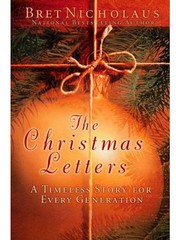 und this article from Publishers Weekly interesting about Bret Nicholaus. Initially Nicholaus self-published a Christmas book, The Christmas Letters, and sold almost 60,000 copies. Now a traditional publisher (Center Street) has released the book with a 75,000 copy first print run. Within the publishing community, Christmas books are considered seasonal and evergreen. They have a limited sales season right around Christmas yet readers buy these types of books year after year (evergreen). Also notice from this article, Nicholaus and his writing partner, Paul Lowrie, have a six-figure deal with St. Martin's children's imprint for a seven-book nonfiction series.
und this article from Publishers Weekly interesting about Bret Nicholaus. Initially Nicholaus self-published a Christmas book, The Christmas Letters, and sold almost 60,000 copies. Now a traditional publisher (Center Street) has released the book with a 75,000 copy first print run. Within the publishing community, Christmas books are considered seasonal and evergreen. They have a limited sales season right around Christmas yet readers buy these types of books year after year (evergreen). Also notice from this article, Nicholaus and his writing partner, Paul Lowrie, have a six-figure deal with St. Martin's children's imprint for a seven-book nonfiction series.
You don't have to be locked into one genre or type of book. You do have to experiment with different types of writing until you find the best fit for you. It might be the best step you could take for your writing life in the weeks ahead.

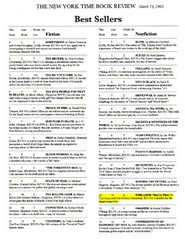 Publishers Weekly.
Publishers Weekly.  I mark a number of websites into the favorites of my computer, but what if through some disaster, my computer crashes, what happens to all of that research and experience? Does it disappear? It does unless you protect it. Or what if you are away from your personal computer at the library and need to find a particular website but can’t recall the exact location? Are you stuck? Maybe unless you have stored all of your favorites into a place called
I mark a number of websites into the favorites of my computer, but what if through some disaster, my computer crashes, what happens to all of that research and experience? Does it disappear? It does unless you protect it. Or what if you are away from your personal computer at the library and need to find a particular website but can’t recall the exact location? Are you stuck? Maybe unless you have stored all of your favorites into a place called 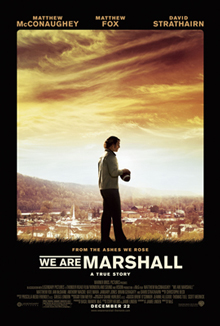 Several times a year, my wife and I take advantage of the "sneak previews" at our local movie theater. If you've never been, these are movies which will release the next week or some times even two weeks from that viewing. It's like reading the pre-release of a bestselling book so you can write something for a magazine. For those people who attend a sneak preview, you feel like you are on the inside track. Actually the theater folks are smart because they generate one of the most powerful mediums of advertising--word of mouth. I'm guilty because I'm going to tell you about a sneak preview we caught on Saturday night. The movie releases this week. We watched
Several times a year, my wife and I take advantage of the "sneak previews" at our local movie theater. If you've never been, these are movies which will release the next week or some times even two weeks from that viewing. It's like reading the pre-release of a bestselling book so you can write something for a magazine. For those people who attend a sneak preview, you feel like you are on the inside track. Actually the theater folks are smart because they generate one of the most powerful mediums of advertising--word of mouth. I'm guilty because I'm going to tell you about a sneak preview we caught on Saturday night. The movie releases this week. We watched  e story, Marshall's assistant coach doesn't fly on the plane but makes a recruiting trip on the way home. He quits his job and is building a shed in the back of his property. The new coach for the football team comes out to talk to the old assistant coach and try and convince him to come back to the team. This conversation happens on the roof of the shed. While the pair are talking, a train whistle sounds in the background and you can hear the rumbling of the freight train down the tracks. From the shed roof you can see the muddy Ohio River in the distance. This point in the film was only one of many that struck the familiar in my life. It will be different for every viewer but it sure hit home for me right there. Why? I was born in Huntington, West Virginia. My dad took some night classes at Marshall University. We lived across the Ohio River in a small town in Northeastern Kentucky for the first twelve years of my life. That scene from the movie was just like lifting a page from my memory banks about my childhood.
e story, Marshall's assistant coach doesn't fly on the plane but makes a recruiting trip on the way home. He quits his job and is building a shed in the back of his property. The new coach for the football team comes out to talk to the old assistant coach and try and convince him to come back to the team. This conversation happens on the roof of the shed. While the pair are talking, a train whistle sounds in the background and you can hear the rumbling of the freight train down the tracks. From the shed roof you can see the muddy Ohio River in the distance. This point in the film was only one of many that struck the familiar in my life. It will be different for every viewer but it sure hit home for me right there. Why? I was born in Huntington, West Virginia. My dad took some night classes at Marshall University. We lived across the Ohio River in a small town in Northeastern Kentucky for the first twelve years of my life. That scene from the movie was just like lifting a page from my memory banks about my childhood.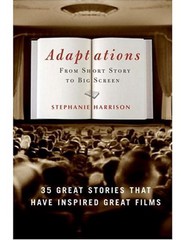
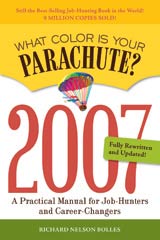

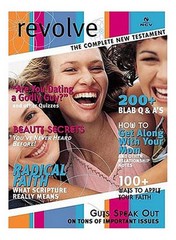 ld in the United States is a virtually impossible task, but a conservative estimate is that in 2005 Americans purchased some twenty-five million Bibles--twice as many as the most recent Harry Potter book. The amount spent annually on Bibles has been put at more than half a billion dollars."
ld in the United States is a virtually impossible task, but a conservative estimate is that in 2005 Americans purchased some twenty-five million Bibles--twice as many as the most recent Harry Potter book. The amount spent annually on Bibles has been put at more than half a billion dollars." 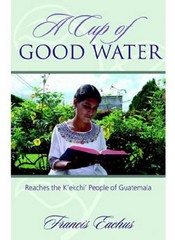
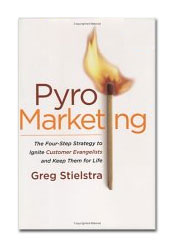
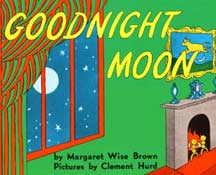 For a window into some of the children's picture books published last year, take a look at this fascinating article in The New Yorker by Elizabeth Kolbert called "
For a window into some of the children's picture books published last year, take a look at this fascinating article in The New Yorker by Elizabeth Kolbert called "
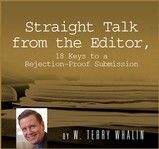
 When push comes to shove, I can be as stubborn and unwilling to change as the next person. For most of us, it's our natural bent and our opinion rules or we take our materials elsewhere. If you have this sort of attitude, then you will be challenged to find any place to publish your material —whether in
When push comes to shove, I can be as stubborn and unwilling to change as the next person. For most of us, it's our natural bent and our opinion rules or we take our materials elsewhere. If you have this sort of attitude, then you will be challenged to find any place to publish your material —whether in 



















